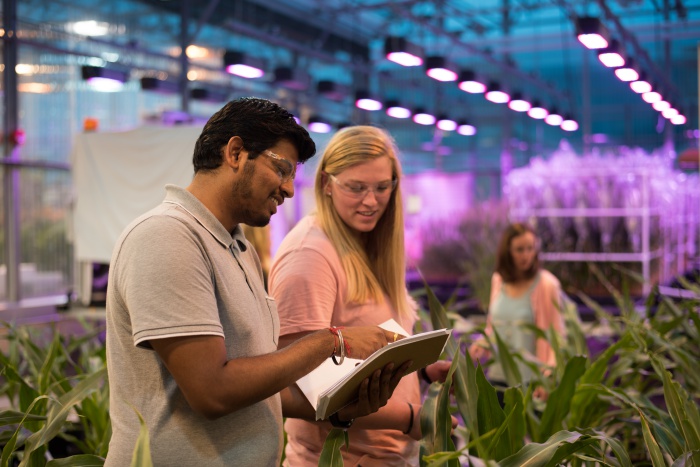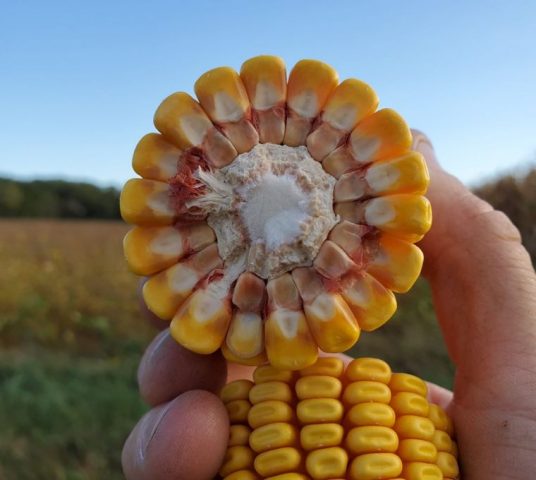Benson Hill empowers innovators to tap the natural genetic diversity in plants to develop healthier, more sustainable foods. By building a community through partnering with universities, government institutions, and companies at every step of the product-development process, Benson Hill is ensuring better food choices for everyone.
- Over 99% calories consumed are derived from less than 1% of plants’ natural diversity. We can do better.
- Agriculture uses 70% of the fresh water in the world. What if crops needed less water?

A 10% increase in corn yields in the US would capture a year’s carbon emissions of New York City. We can make it happen.
It’s time for a fresh approach to feeding the world. So how do we transform our food system to bring delicious, nutritious food to our growing population? How do we empower farmers to grow the next generation of crops, and enable food producers to turn those into healthier, tastier ingredients? These are the questions Benson Hill is answering.
Simply put, there’s no single answer to solving the challenge to nourish the world’s growing population, but Benson Hill believes the foundation lies in a healthy, sustainable food system rooted in diversity and choice—a variety of crops and product choices, optimized for different growing conditions by a community of innovators who are passionate about food and food production. But how do they do that?
“Nature, it turns out, is an incredibly generous and under-utilized source of genetic diversity that can improve food production and quality,” says Matthew Crips, Benson Hill’s president and CEO. “We’ve built our company to enable innovators to collaborate and tap this diversity, wherever they may be in the food and agriculture supply chain.”

Benson Hill knows that building a more robust food system will take a community of innovators—companies and institutions of all sizes—who are working with the most advanced data analytics and genomics tools available, and the community will find all of that in Benson Hill’s CropOS™.
Alongside its partners, Benson Hill uses CropOS™ to apply design thinking to deliver differentiated products that create more choices and benefits for consumers, food producers, and farmers. Such collaboration means Benson Hill’s partners can remain focused on their core business as they bring better products to market faster, for less cost.
Many of Benson Hill’s innovations begin with nature, but also with the company’s team, which includes plant biologists, physiologists, geneticists, data scientists, and software developers.
“The key to our company, like many companies, has been our people—the caliber of talent we can attract and the ability to unlock that talent in a complex and fast-moving environment,” Matthew says. “We believe in the power of a healthy organization and culture, and we put a lot of effort into understanding what it requires.”

To that end, Benson Hill’s core values promote clarity of expectations, alignment on direction, and commitment to self and team. Shaping the future of food and agriculture requires deliberate purpose, and Benson Hill is an example of an entity greater than the sum of its parts.
“Our purpose is not just to develop great products, but to empower innovators across the value chain to also do great things. We are inspired and energized by this emerging community of innovators across the value chain,” Matthew says. “The challenges our society and our planet are facing are far greater than what any one organization can address. My great colleagues at Benson Hill get this and understand that we are all contributing to building a company of significance and of impact, built to last far beyond what we will individually bring to it.”













